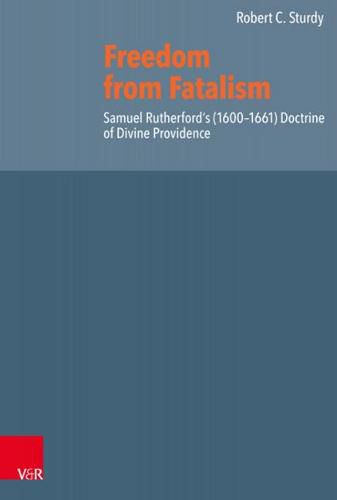Readings Newsletter
Become a Readings Member to make your shopping experience even easier.
Sign in or sign up for free!
You’re not far away from qualifying for FREE standard shipping within Australia
You’ve qualified for FREE standard shipping within Australia
The cart is loading…






Samuel Rutherford’s (1600-1661) scholastic theology has been criticized as overly deterministic and even fatalistic, a charge common to Reformed Orthodox theologians of the era. This project applies the new scholarship on Reformed Orthodoxy to Rutherford’s doctrine of divine providence. The doctrine of divine providence touches upon many of the disputed points in the older scholarship, including the relationship between divine sovereignty and creaturely freedom, necessity and contingency, predetermination, and the problem of evil. Through a close examination of Rutherford’s Latin works of scholastic theology, as well as many of his English works, a portrait emerges of the absolutely free and independent Creator, who does not utilize his sovereignty to dominate his subordinate creatures, but rather to guarantee their freedom. This analysis challenges the older scholarship while making useful contributions to the lively conversation concerning Reformed thought on freedom.
$9.00 standard shipping within Australia
FREE standard shipping within Australia for orders over $100.00
Express & International shipping calculated at checkout
Samuel Rutherford’s (1600-1661) scholastic theology has been criticized as overly deterministic and even fatalistic, a charge common to Reformed Orthodox theologians of the era. This project applies the new scholarship on Reformed Orthodoxy to Rutherford’s doctrine of divine providence. The doctrine of divine providence touches upon many of the disputed points in the older scholarship, including the relationship between divine sovereignty and creaturely freedom, necessity and contingency, predetermination, and the problem of evil. Through a close examination of Rutherford’s Latin works of scholastic theology, as well as many of his English works, a portrait emerges of the absolutely free and independent Creator, who does not utilize his sovereignty to dominate his subordinate creatures, but rather to guarantee their freedom. This analysis challenges the older scholarship while making useful contributions to the lively conversation concerning Reformed thought on freedom.